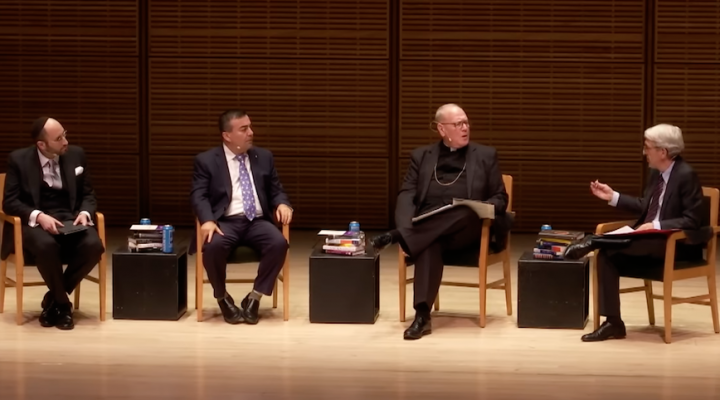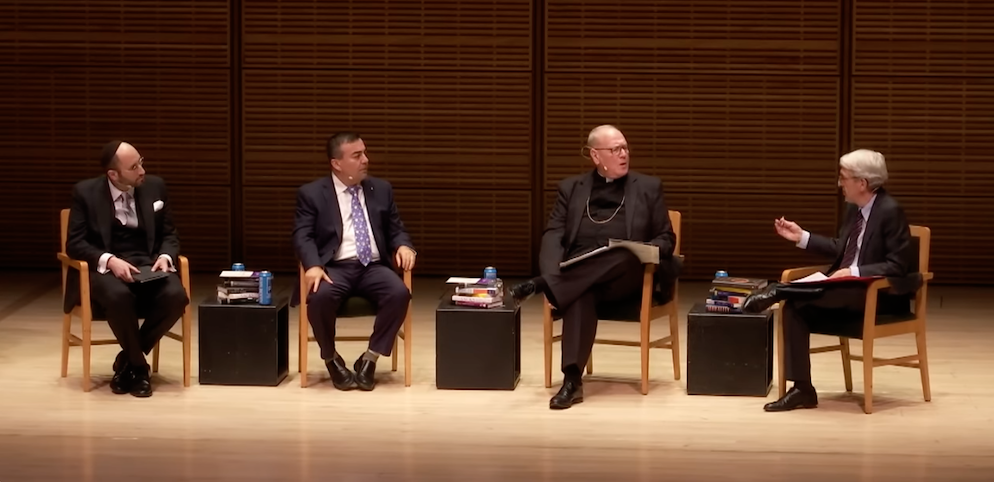Would-be peacemakers must cultivate their own spiritual health before attempting to bring justice and healing to a fractured world, religious leaders said during a panel discussion at Carnegie Hall.
“If the internal work is done well, if you instill the love of God and God’s creation in yourself and in your community, that inevitably will overflow to the external,” said Imam Abdullah Antepli, associate professor of the practice of interfaith relations at the Sanford School of Public Policy at Duke University.
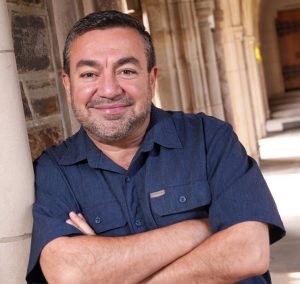
Abdullah Abntepliu
Antepli was joined on the panel by Cardinal Timothy Dolan of the Catholic Archdiocese of New York and Meir Yakov Soloveichik, assistant professor of Judaic studies and director of the Straus Center at Yeshiva University.
The panel was part of the 2023 Sacks Conversation honoring the memory of the late Rabbi Lord Jonathan Sacks, a theologian, philosopher, faith leader and author who served in the UK Parliament. The event featured speakers, musical performances and video presentations devoted to celebrating interfaith teachings of Sacks, who died in 2020.
While the gathering was planned months in advance, the Oct. 7 Hamas attack on Israel thrust issues of religious violence and antisemitism into the spotlight.
“Three weeks ago, Hamas unleashed the greatest brutality perpetrated on the Jewish people since the Holocaust. On a day when the Jewish people were in celebration, reading in the Torah that all humanity is created in the divine image, hundreds of innocent Israelis were slaughtered,” philanthropist and Paramount Global Chairwoman Shari Redstone said in her keynote address.
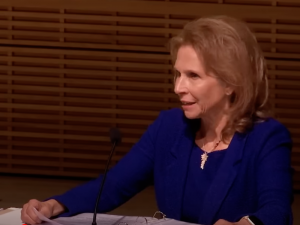 Rabbi Sacks often promoted the Torah as a blueprint for global peace, Redstone said. “While the ancient world celebrated tyrants, the Torah tells the story of slaves freed, oppressors overthrown and a society built under the rule of law. This story inspired America’s founding fathers and it continues to inspire people around the world.”
Rabbi Sacks often promoted the Torah as a blueprint for global peace, Redstone said. “While the ancient world celebrated tyrants, the Torah tells the story of slaves freed, oppressors overthrown and a society built under the rule of law. This story inspired America’s founding fathers and it continues to inspire people around the world.”
That message also is needed in the U.S. where antisemitism, racism and persistent anti-democracy campaigns are on the rise, she added. “Social media and other influences are wreaking havoc on the truth, and demagogues are preying on our differences. Extremism is filling the void, and hatred and violence are taking root.”
Promoting and expanding education will help protect American democracy, she said. “The gaps in civic literacy today are shocking. According to a recent study, only 26% of Americans can name the three branches of government. Less than one out of four Americans correctly named freedom of religion as a right guaranteed by the First Amendment. How can we expect citizens to safeguard democracy and human rights when they lack foundational understanding of how our democracy functions?”
Americans must also learn how to communicate through disagreement, she asserted. “In Jewish tradition, there is a cherished concept called argument for the sake of heaven. Argument for the sake of heaven is about respectful disagreement because disagreement is itself sacred. It is part of honoring each person’s dignity.”
It also requires teaching younger generations that ordinary people can oppose demagogues and extremists by getting and remaining involved, she said. “Our fractured society will not heal on its own. The story of human dignity requires our ongoing commitment to enact it. We have the power and the necessity to invest in a future driven by what Rabbi Sacks saw as Judaism’s greatest gift to humanity.”
Yale University President and panel moderator Peter Salovey opened the discussion by describing the ongoing war in Israel as the world’s “latest fracture.” He asked Dolan what actions are needed to replace discord with dialogue in these divided times.
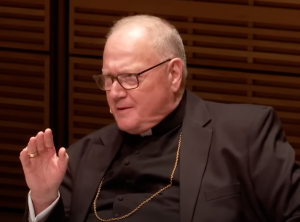
Timothy Dolan
“To heal a fractured world, we first of all need to acknowledge, identify and admit the fracture,” Dolan said. “We tend to avoid or deny or run away. But we can never be healed by a physician without acknowledging the flaw, telling the pain to the physician and allowing proper assessment and examination.”
Human connection also is needed to bridge contentious divides, he said. “There’s that human foundation for healing that a community can bring together, that a church can bring together, that a synagogue can bring together to show that warm, gracious human face in times of turmoil and destruction and violence and bitterness.”
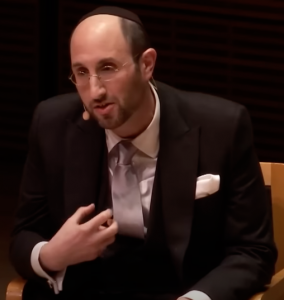
Meir Yakov Soloveichik
Before answering the same question, Antepli condemned the actions of Hamas as “barbaric savagery” and explained there is no justification in Islam for the attack against Israel. But people and communities of faith must avoid responding to hate with hate, he said. “What religions do at best in these times of calamity and disaster is to slow us down. Make sure, in response to calamities and tragedies, that we are not revealing the worst of ourselves, that we are not being taken over by emotions, anger and a sense of revenge.”
One of the most challenging aspects of hatred is that it shifts to meet cultural situations, Soloveichik said. “What Rabbi Sacks said was that antisemitism is a constant throughout history, but it mutates. And what it does is it takes on the ethos and the language of the time using it to masquerade itself in fomenting assaults on the Jewish people.”
Interfaith dialogue and action offer a powerful response to antisemitism, whatever its context, Soloveichik said. “In the spirit of Rabbi Sacks’ leadership, we need to make the case together and work together as leaders of different faiths to make this case to America, to make this case to the world. That’s how we respond to the darkness in the midst of this very dark time.”

